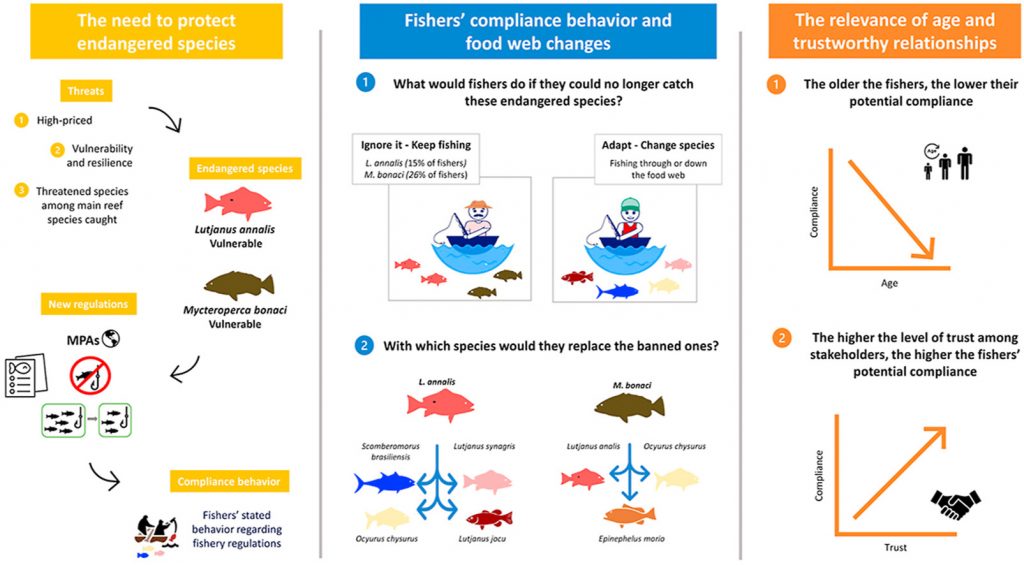Image above: Graphic representation of Brazilian small-scale fishers compliance behaviour to fisheries management
Authors: M.R.O. Silva, M. Grazia Pennino, and P.F.M. Lopez
Many global management and conservation initiatives fail to prevent overfishing, either because they do not include local engagement, surveillance, and enforcement, and/or because they fail to provide alternatives to the short-term losses of those affected by the new measures. Brazilian fishers were interviewed about how they would react to fisheries regulations under certain scenarios. Possible (non)compliant behaviour was assessed in scenarios where fishers would face a moratorium on some of their target fish species that were likely to be subjected to stricter management measures in the near future. The consequences of this moratorium on the food web was also investigated, assuming that fishers would replace the banned species with others. Results showed that younger fishers and those who expressed a trustworthy relationship with stakeholders were more inclined to state compliant behaviour in scenarios with new rules. Fishers tended to trust community actors (e.g., the leader or head of the fishing community) more than institutional actors (e.g., environmental agencies). Expected profits and ease of capture were the most common reasons given by fishers asked why they would choose specific replacement species if a moratorium was imposed. Fishers also tended to say that they would replace endangered species with species in the same and/or lower trophic categories. Developing stronger stakeholder engagement seems key, given that an overall sense of trust in a community appears to be important for successful management. Higher levels of trust could promote more transparency in the decision-making process, which could facilitate dissemination of information, awareness, and the need for compliance. The mixed methods approach used here could help predict responses to new and existing management policies and support adaptive fisheries management. Read more
